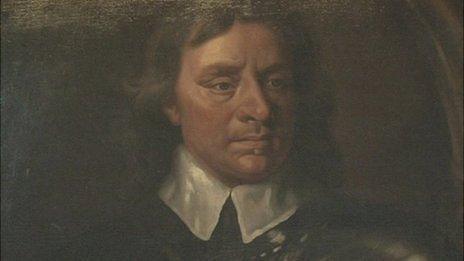Huntingdon's Oliver Cromwell museum marks 375th anniversary of suffrage debate
- Published

A new display at the Cromwell Museum in Huntingdon marks the 375th anniversary of the Putney Debates
A museum is marking the 375th anniversary of the meetings where the idea of votes for all men was mooted.
The display at the Cromwell Museum in Huntingdon, Cambs, covers the 1647 discussions between the Levellers - a group created in the wake of the first English Civil War - and army generals.
Chaired by Oliver Cromwell, those who felt ordinary people should have a say in government put forward their plans.
The museum, said it was "a step on the creation of [our] democracy".
Cromwell, who ruled England and Wales as Lord Protector in 1653 after the execution of Charles I, was born in Huntingdon, external and was MP for Huntingdon and then Cambridge.
The series of meetings at St Mary's Church in Putney, in October and November 1647, between the Levellers group and generals of Cromwell's Parliamentary army, discussed ideas about the political settlement and the future of the government after Parliament's victory over Charles I in the first English Civil War.
They came up with a proposal to extend the franchise to about 60% of men in England and Wales.
At the time, only 5-6% of men, and no women, were entitled to vote for MPs, and that entitlement was based on property and land ownership, which varied from constituency to constituency.


Ideas about the future of government were discussed in St Mary's church, Putney, from 28 October to 8 November, 1647
How did the Putney Debates come about?
In 1647, England was coming out of the first Civil War, a conflict between Charles I, who claimed the divine right of kings gave him the right to govern, and Parliament, who wanted a wider sharing of power
Many Parliamentarian soldiers were owed pay and wanted to ensure indemnity against prosecution from anything they had done in the conflict
From these basic concerns, some soldiers became more radical and called for political reform, as they had fought for their country and therefore should have a say in its government
An army council of senior officers, including Commander-in-Chief Sir Thomas Fairfax and second-in-command Cromwell, and representatives from each regiment - known as "agitators" - was formed to discuss the grievances
Many of the representatives worked with civilian Levellers - a group of radical thinkers - to produce a manifesto, an Agreement of the People, which demanded male suffrage, religious toleration and a fair legal system
These ideas were discussed in Putney from 28 October to 8 November 1647
Source: Cromwell Museum and BBC

Museum curator, Stuart Orme, said the meetings were significant because it was "the first time a group of influential people sat down for a serious discussion about whether [more] men should have the vote".
However, the agreement was never put to the House of Commons.
Charles I heard about the Levellers' ideas, and talk about whether there was a need for a king, and escaped from Hampton Court where he was under house arrest.
"Although he was soon recaptured, this effectively fired the starting gun on the restarting of the Civil War," Mr Orme said.
"The generals decided that the discussions should be put to one side, the army should reunify and go back to war .
"The ideas gradually fizzled out and there was no appetite to pick them back up and run with them again."
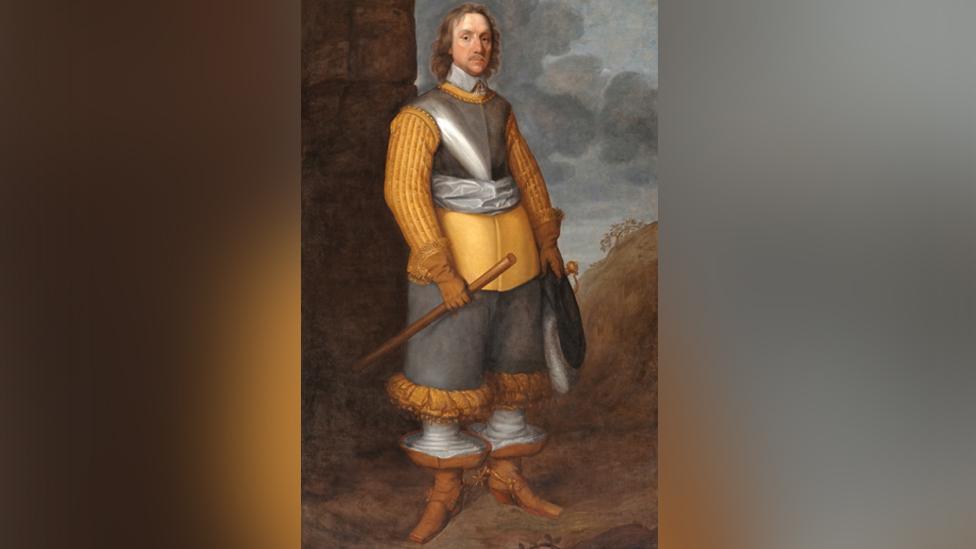
Chairman of the debates was Oliver Cromwell, who was born in Huntingdon in 1599
The Cambridgeshire museum's new display, All People One: The Levellers, which runs until April, looks at the rise and fall of the group and its long-term impact.
The is also an event on 10 and 11 December where a replica of a 17th Century printing press will demonstrate how pages were created for the Leveller's radical pamphlets.
Mr Orme said the war was a "watershed moment" in terms of the printing press, when after 200 years of censorship, both sides "saw the value of it as a weapon".
More printed material was produced in the first year of the Civil War than there had been in the previous 200 years, he said.
"The genie was out of the bottle... you could say that the Civil War was the first 'fake news' war with both sides printing false information about the other. We do the same today, it's just on social media," he added.
"The Leveller movement happened because it could feed off this circulation of ideas, but they also took advantage of it."
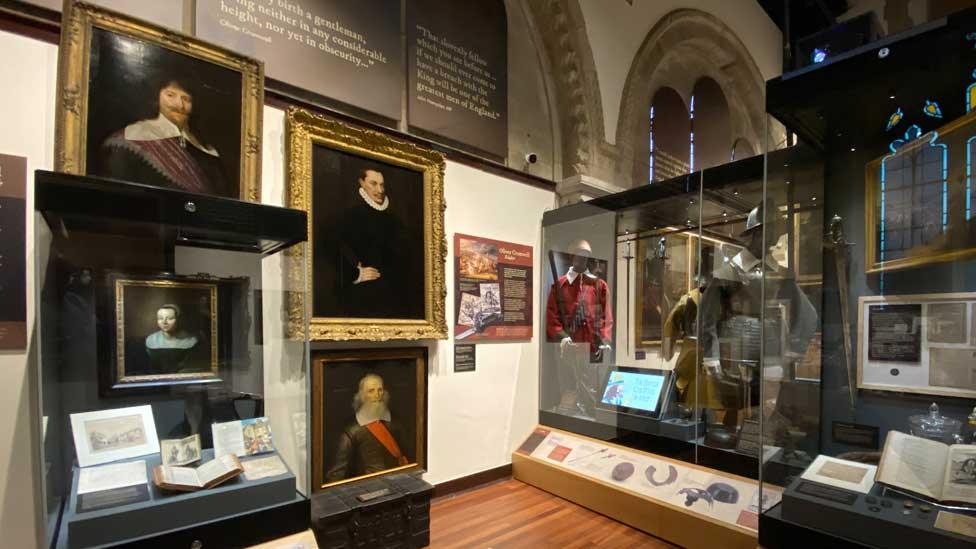
The Cromwell Museum, which was Cromwell's old school, is packed with portraits, documents, three of the four swords known to have been owned by Cromwell and memorabilia
Mr Orme said that "for many people, the Leveller movement was a step on the creation of the democracy we enjoy today".
"Although the vote was not extended to all adults for another 200 years after the Putney Debates, the idea was first considered by these radical 17th Century thinkers, who spread their ideas by printed pamphlets - the internet revolution of its day," he said.
"Our new exhibit and event will bring these important events to life for visitors."

Find BBC News: East of England on Facebook, external, Instagram, external and Twitter, external. If you have a story suggestion email eastofenglandnews@bbc.co.uk, external
Related topics
- Published24 October 2022
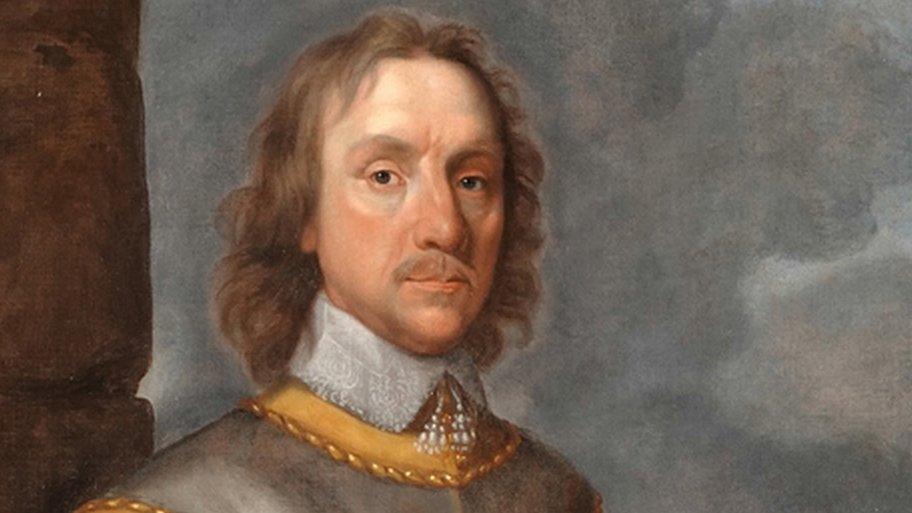
- Published8 May 2022
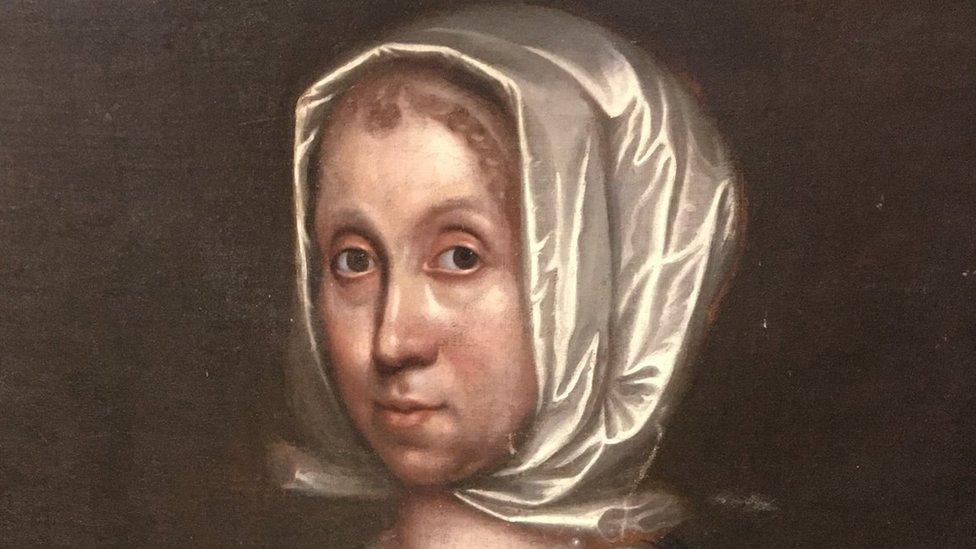
- Published31 October 2021

- Published15 February 2020
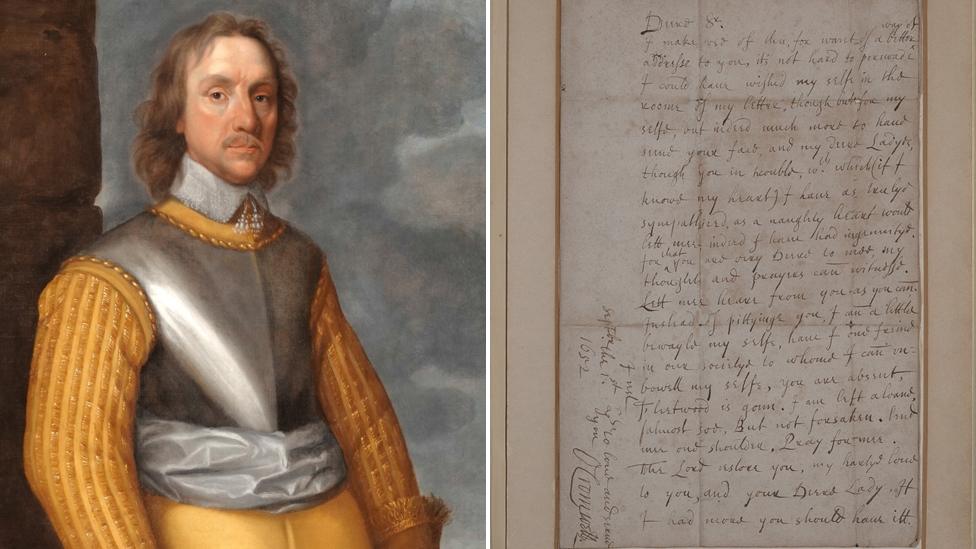
- Published18 February 2014
